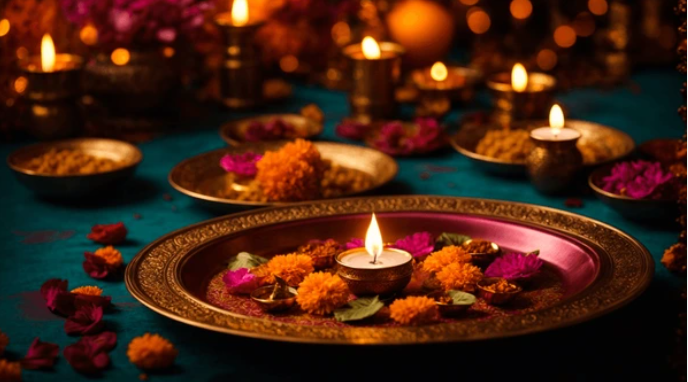Diwali and its Cultural Importance to India, Nepal and Sri Lanka
Diwali, Deepavali or the Festival of Lights, is a culturally important holiday in India, Nepal, and Sri Lanka. Its origins have roots in the Hindu religion. It’s celebrated in October or November, falling on different days, since it’s based on the lunar calendar. The main night of the holiday falls on the darkest night of the month. Diwali represents the triumph of good over evil, light over darkness, and overall hope over despair. The festival is celebrated in many countries outside of South Asia. While it is a national holiday in India, Nepal and Sri Lanka, it is also officially recognized in Fiji, Guyana, Malaysia, Mauritius, Myanmar, Singapore, Suriname, and Trinidad and Tobago.
Different religions celebrate Diwali with variations. Hindus celebrate Diwali to recognize the triumph of good over evil, referring to the story of Ram’s triumph over Raavan in the Ramayana. Jains celebrate Diwali to celebrate the attainment of moksha by Mahavira, Sikhs celebrate Bandi Chhor Divas to note the release of Guru Hargobind from a Mughal Empire prison, and Newar Buddhists, unlike the majority of Buddhists, celebrate Diwali by worshiping Lakshmi, the goddess of wealth.
Diwali dates back to ancient times in India. It is mentioned in many Sanskrit texts dating back to 1000 A.D., but believed to have been derived from texts from a much earlier time. The diyas (lamps) symbolically represent the sun, signifying light and energy for life. Diwali is an auspicious and happy time for most families in South Asia, particularly India, Nepal, and Sri Lanka. People clean and decorate their homes, and shop for new clothes, jewelry, and household appliances. Gifts are given to family and friends, ranging from sweets, flowers, dry fruit, and cash. Children will participate in plays or listen to stories depicting the legendary battles of good over evil derived from the Hindu religion and the story of the Ramayana. And, of course, there are lots and lots of fireworks!
Diwali is celebrated by several religions and cultures across the South Asia region and the world. Each one marks a different historical event and has its own stories, but they all symbolize the victory of good over evil, right over wrong, light over darkness, knowledge over ignorance, and hope over despair.



